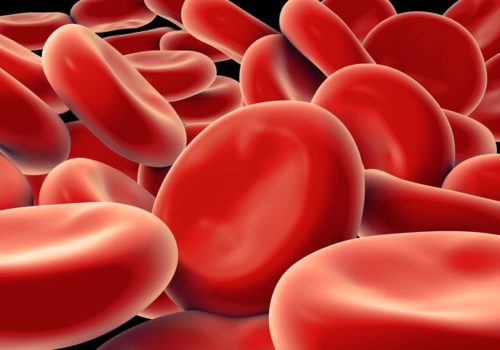This article provides an in-depth look at the role of carbohydrates in obesity, impaired glucose regulation and type 2 diabetes. Foods containing carbohydrates are an important part of a healthy diet for both the general population and those with, or at risk of, type 2 diabetes and cardiovascular disease. However foods and drinks high in ‘free sugars’ should be restricted.
Cardiovascular risk in the elderly
The incidence and prevalence of cardiovascular diseases increase in older adults and are a common cause of morbidity and mortality. This article by Dr David Milne examines whether we can reduce cardiovascular risk in the elderly, and if so, should we try to do so?
The role of carbohydrates in a healthy diet: part 1
Never a week goes by without carbohydrates hitting the headlines, with heated debates raging over low carb diets for weight loss to sugar as “the new tobacco”. Sorting fact from fiction is hard for health professionals and patients alike. In this article we go behind the headlines to explore the truth about carbohydrates in a healthy diet.
Familial hypercholesterolaemia – How can we do better?
The British Heart Foundation is pressing for a renewed focus on improving the diagnosis and management of familial hypercholesterolaemia, and adoption of a nationwide cascade screening programme for first-degree relatives. The article includes best practice tips for busy primary healthcare professionals.
Can we safely recommend HRT?
Claire Bellone, clinical nurse specialist at the Chelsea & Westminster Hospital NHS Trust, gives her personal view on how primary healthcare professionals can work with women with menopausal symptoms and implement the recommendations of the NICE guideline on the diagnosis and management of menopause.
Using the novel oral anticoagulants in primary care
Stroke related to atrial fibrillation can be prevented effectively through the use of anticoagulants. This article reviews recent guidelines, clinical trials and real-world evidence with non-vitamin K antagonist oral anticoagulants (NOACs) in patients with AF and provides practical guidance on the use of these newer agents in primary care.
Sacubitril/valsartan: Clinical evidence from PARADIGM-HF
The large randomised controlled trial PARADIGM-HF showed that treatment with sacubitril/valsartan (Entresto) compared with enalapril reduced the risk of hospitalisation, cardiovascular and all-cause mortality and improved symptoms in patients with heart failure with reduced ejection fraction. This article describes the key results and how they can be applied in primary care.
Editorial: Sacubitril/valsartan in heart failure – a guide for primary care
HF has a major impact on patients, their families, the NHS and social care services. It still has a poor prognosis, worse than many of the common cancers that also affect older people. It causes significant morbidity and imposes a major cost burden on the health service. This editorial provides an introduction to a special supplement on a first-in-class oral treatment for heart failure.
Sacubitril/valsartan in primary care: The commissioner’s role
Commissioning is not so different from seeing patients. As a GP you listen, examine, draw up a diagnosis and plan treatment. In commissioning, the community served by the clinical commissioning group (CCG) is the ‘patient’. When considering the introduction of a new treatment for heart failure (HF) such as sacubitril/valsartan (Entresto), we must consider not only its acquisition costs but also its potential benefits in improving patients’ symptoms and reducing expensive hospital admissions.
Sacubitril/valsartan in primary care: The pharmacist’s role
Sacubitril/valsartan (Entresto), the first angiotensin receptor-neprilysin inhibitor (ARNI), is a recently licensed medication that has been shown to improve outcomes for patients with symptomatic chronic HF with reduced ejection fraction (HF-REF) compared with current gold-standard treatment with an ACE inhibitor. This article describes the pharmacist’s role in supporting patients receiving sacubitril/valsartan.
Sacubitril/valsartan in primary care: The practice nurse’s role
Many patients with heart failure rely on practice nurses to monitor their care. A multidisciplinary team (MDT) integrated community approach has been endorsed by NICE guidelines when delivering HF care. This article provides practice nurses with the information they need to understand the condition, current treatment guidelines, and the new treatment – sacubitril/valsartan, the first-in-class angiotensin receptor-neprilysin inhibitor.
Sacubitril/valsartan: Implementation in primary care
This article describes the use of sacubitril/valsartan – the first-in-class angiotensin receptor-neprilysin inhibitor (ARNI) in primary care and how the new drug fits in the heart failure treatment pathway. Current guidelines and case studies are also explored to provide further understanding of this latest HF treatment to enter clinical use.

































